Introduction:
Congratulations! You’re pregnant! Excitement and anticipation likely bubble alongside a whirlwind of questions. One common piece of advice you might encounter is the age-old adage: “You’re eating for two now!” While well-meaning, this advice can be misleading. So, is doubling your calorie intake truly necessary for a healthy pregnancy? Let’s debunk this myth and explore the importance of a balanced and nutritious diet for both you and your developing baby.
Eating for Two Myth Debunked:
It’s time to say goodbye to the “eating for two” myth! While your baby’s nutritional needs do increase during pregnancy, it doesn’t translate to needing double the amount of food. Focusing solely on quantity can be detrimental to your health and well-being. The key lies in quality – prioritizing a balanced and nutrient-rich diet that fuels both your body and your baby’s growth.
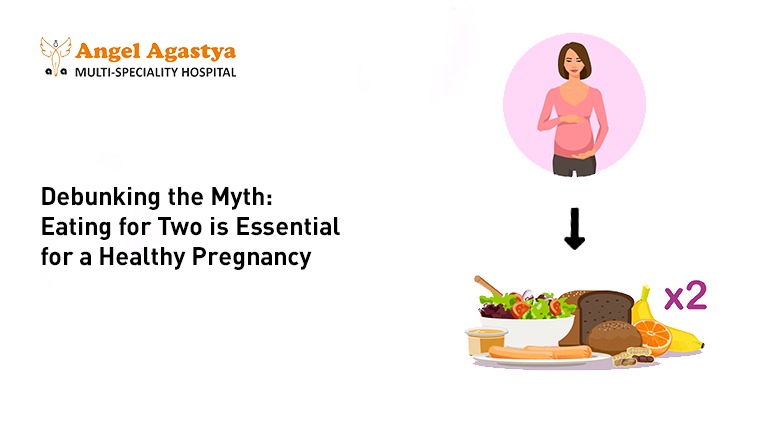
Science Behind the Calories:
The exact calorie needs during pregnancy vary depending on several factors, including your pre-pregnancy weight, activity level, and trimester. However, most women only require an additional 300-500 calories per day during the second and third trimesters. The first trimester typically doesn’t require any significant increase in calorie intake. Focusing on nutrient-dense foods ensures your body gets the essential vitamins, minerals, and protein necessary for your health and your baby’s development.
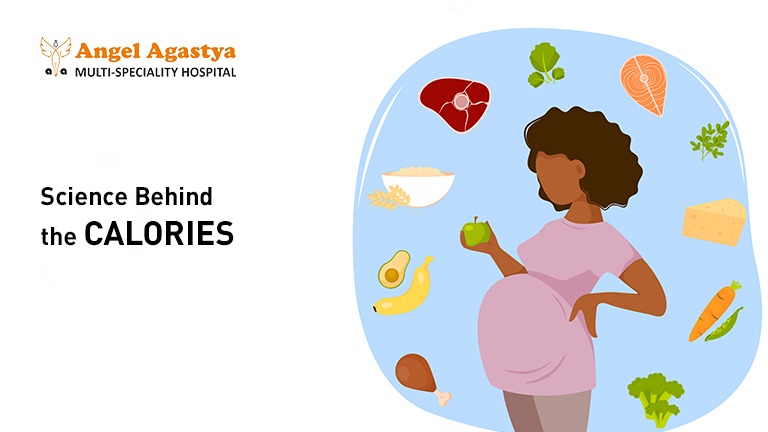
Understanding Your Body’s Needs:
Throughout pregnancy, your body undergoes incredible transformations to nurture your growing baby. Here’s a breakdown of the key nutrients and their importance:
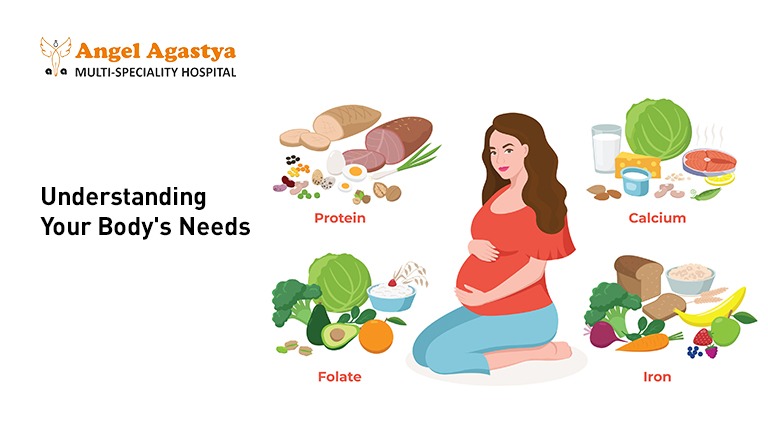
- Protein: Crucial for building and repairing tissues, protein is essential for your baby’s development. Fuel your body and your baby’s growth with a symphony of lean protein sources like fish, poultry, beans, and lentils are excellent choices.
- Calcium: Calcium supports the development of your baby’s strong bones and teeth. Dairy products, leafy green vegetables, and fortified foods are rich in calcium.
- Iron: Iron helps transport oxygen throughout your body and to your baby. Lean meats, beans, and iron-fortified cereals are good sources of iron.
- Folic Acid: This vital B vitamin helps prevent birth defects. Aim for foods naturally rich in folic acid like leafy green vegetables, lentils, and fortified grains.
- Vitamins and Minerals: A prenatal vitamin can help ensure you and your baby get the full spectrum of necessary nutrients.
Building a Balanced Plate:
Here are some tips for creating a balanced eating for two diet and nutritious plate throughout your pregnancy:
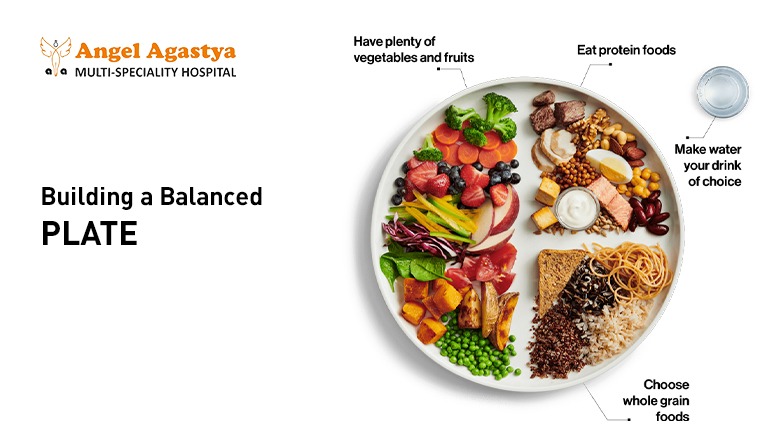
- Fill Half Your Plate with Fruits and Vegetables: These colorful powerhouses are packed with vitamins, minerals, and fiber. Aim for a vibrant selection of colorful fruits and vegetables.
- Choose Whole Grains Over Refined Grains: Whole grains provide sustained energy and essential dietary fiber. Incorporate brown rice, quinoa, whole-wheat bread, and whole-wheat pasta in your eating for two diet.
- Incorporate Lean Protein Sources: Include protein with each meal and snack to support your body’s needs and your baby’s growth.
- Don’t Forget Healthy Fats: Healthy fats like those found in avocados, nuts, and olive oil are essential for your baby’s brain development and cell growth.
- Stay Hydrated: Drinking plenty of water throughout the day is crucial for overall health and helps prevent constipation, a common pregnancy discomfort.
Doctor Communication is Key:
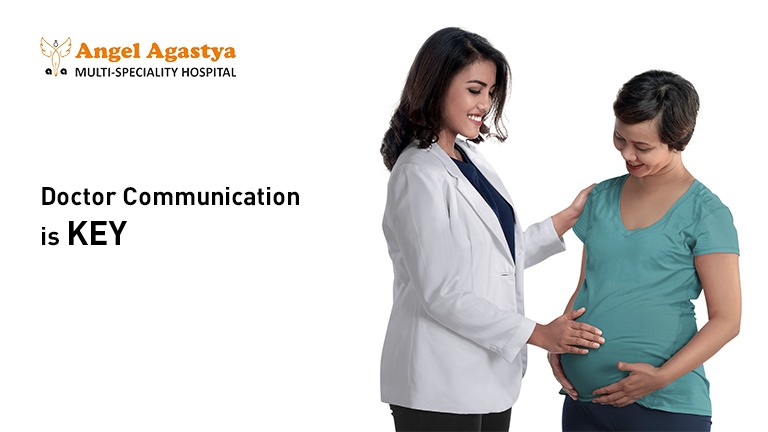
While this blog provides general guidelines, it’s important to consult with your doctor or a registered dietitian to create a personalized pregnancy eating for two diet plan tailored to your specific needs and preferences. They can address any concerns you might have about your calorie intake, and nutrient deficiencies, and recommend prenatal vitamins to ensure you and your baby are getting the best possible nutrition.
Embrace the Journey:
Remember, a healthy pregnancy isn’t about quantity, it’s about quality. Focus on nourishing your body with a balanced and delicious array of foods. Listen to your body’s hunger cues, don’t be afraid to indulge in occasional cravings in moderation, and don’t hesitate to seek guidance from your doctor or a registered dietitian. Embrace this exciting chapter of your life and prepare for the incredible adventure of motherhood, one nutritious bite at a time!
Summary:
As you embark on your pregnancy journey, ditch the “eating for two” myth! While your baby needs more nutrients, quality trumps quantity. Focus on a balanced diet rich in protein, calcium, iron, and folic acid. Fill half your plate with colorful fruits and vegetables, choose whole grains, and incorporate lean proteins. Don’t forget healthy fats for your baby’s development. Consult your doctor or a registered dietitian for a personalized eating for two diet plan to nourish you both on this exciting journey. Remember, quality, not quantity, is key to a healthy pregnancy!
FAQs:
1. Isn’t eating for two necessary for a healthy pregnancy?
No, the “eating for two” adage is a myth. While your baby’s nutritional needs increase, you don’t need to double your calorie intake. Focusing on quality and nutrient-dense foods is more important.
2. How many extra calories do most women need during pregnancy?
The exact number varies depending on factors like pre-pregnancy weight and activity level. Typically, most women only need an additional 300-500 calories per day during the second and third trimesters.
3. What nutrients are especially important during pregnancy?
Protein is crucial for your baby’s development, so include lean protein sources like fish, poultry, beans, and lentils in your diet. Calcium helps build strong bones and teeth, found in dairy products, leafy greens, and fortified foods. Iron is essential for oxygen transport, obtainable from lean meats, beans, and iron-fortified cereals. Folic acid, a B vitamin, helps prevent birth defects and is found in leafy greens, lentils, and fortified grains. Prenatal vitamins can ensure you get a full spectrum of necessary nutrients.
4. What should a balanced pregnancy plate look like?
Fill half your plate with fruits and vegetables for vitamins, minerals, and fiber. Choose whole grains over refined grains for sustained energy and fiber. Include lean protein sources with each meal and snack. Don’t forget healthy fats from avocados, nuts, and olive oil, which are important for your baby’s brain development. Staying hydrated is crucial, so drink plenty of water throughout the day.
5. Isn’t it okay to indulge in cravings sometimes?
Occasional indulgence in moderation is generally fine. However, focus on nourishing your body with a balanced diet most of the time.
6. What if I’m unsure about how much to eat?
A doctor or registered dietitian can create a personalized pregnancy diet plan based on your specific needs and preferences. They can also address concerns about calorie intake, and nutrient deficiencies, and recommend prenatal vitamins.
7. I’m worried about gaining too much weight during pregnancy. What should I do?
Maintaining a healthy weight gain throughout pregnancy is important. Talk to your doctor about a healthy weight gain range for you. They can help you create a balanced diet and exercise plan to support a healthy pregnancy.
8. What if I have a vegetarian or vegan diet? Can I still get the nutrients I need while pregnant?
Yes, a well-planned vegetarian or vegan eating for two diet can provide all the necessary nutrients during pregnancy. Talk to your doctor or a registered dietitian to ensure you’re getting enough protein, iron, calcium, and other essential nutrients.
9. What are some signs that I might not be eating enough during pregnancy?
Excessive fatigue, constant hunger, and difficulty concentrating can be signs of inadequate calorie intake. Consult your doctor if you’re concerned about not doing enough eating for two.
10. How can I manage nausea and vomiting during pregnancy, which can affect my appetite?
Eating small, frequent meals can help prevent an empty stomach, which can trigger nausea. Ginger, in teas, candies, or grated in cooking, has natural anti-nausea properties. Staying hydrated with water and clear liquids is crucial for eating for two. Identify and avoid food or smell triggers. If nausea is severe or impacts your daily life, consult your doctor for guidance and possible medication recommendations.


Just wish to say your article is as astounding. The clearness in your post is simply great and i could assume you’re an expert
on this subject. Fine with your permission let
me to grab your feed to keep updated with fkrthcoming post.
Thanks a million and please keep up the gratifying work.
Spot on with this write-up, I actually believe that this
amazing site needs a lot more attention. I’ll probably be back again to read more, thanks
for the information!